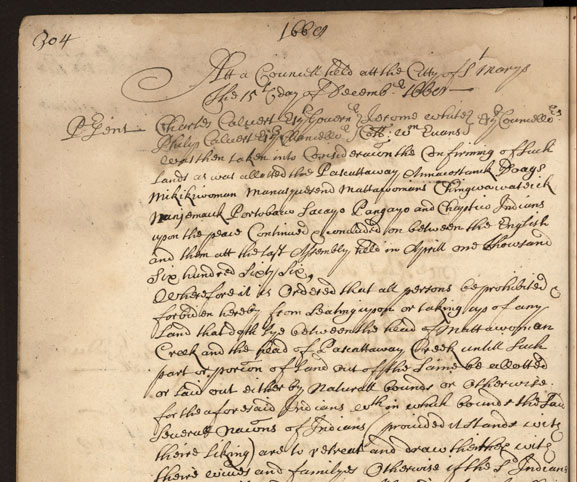Teaching Indigenous History

Mayis means "a path; to go on" in the Renape dialect /deh nah pea/. As a web resource, the goal of Mayis is to provide a path to the Maryland State Archives records about the Indigenous peoples of the Chesapeake Bay region.
As teachers and historians recognize, history is often shaped and written by those in positions of power. Documents are created and preserved by those with the resources to do so, and years later, the same documents are interpreted by those in power. This dynamic can lead to a biased historical narrative or the exclusion of multiple perspectives. History has privileged those with written language and access to technology to reproduce the written or spoken word. Since the Indigenous people of North America relied on oral traditions, there are few early records written in their words.
The Indigenous Maryland Inquiry Kits were created in part to highlight sources from the Maryland State Archives and their Mayis Indigenous Records collection. The documents from the Archives include court records, general assembly and council proceedings, and land records, among other official colonial or state documents. These records reveal Indigenous people who were accused of crimes or who witnessed the crimes of white settlers. Generally, Indigenouds people are not depicted as the accusers against others – the law was not theirs to wield. The records also document different accounts of leaders meeting and reaching agreements that favored white colonial and state leaders. The sources used in the kits are examples of the voices of power. The goals of incorporating these sources into the kits are to contextualize government records, provide a more comprehensive view of Indigenous life, and encourage students to interrogate the unheard voices behind a source.
Teacher’s Note










